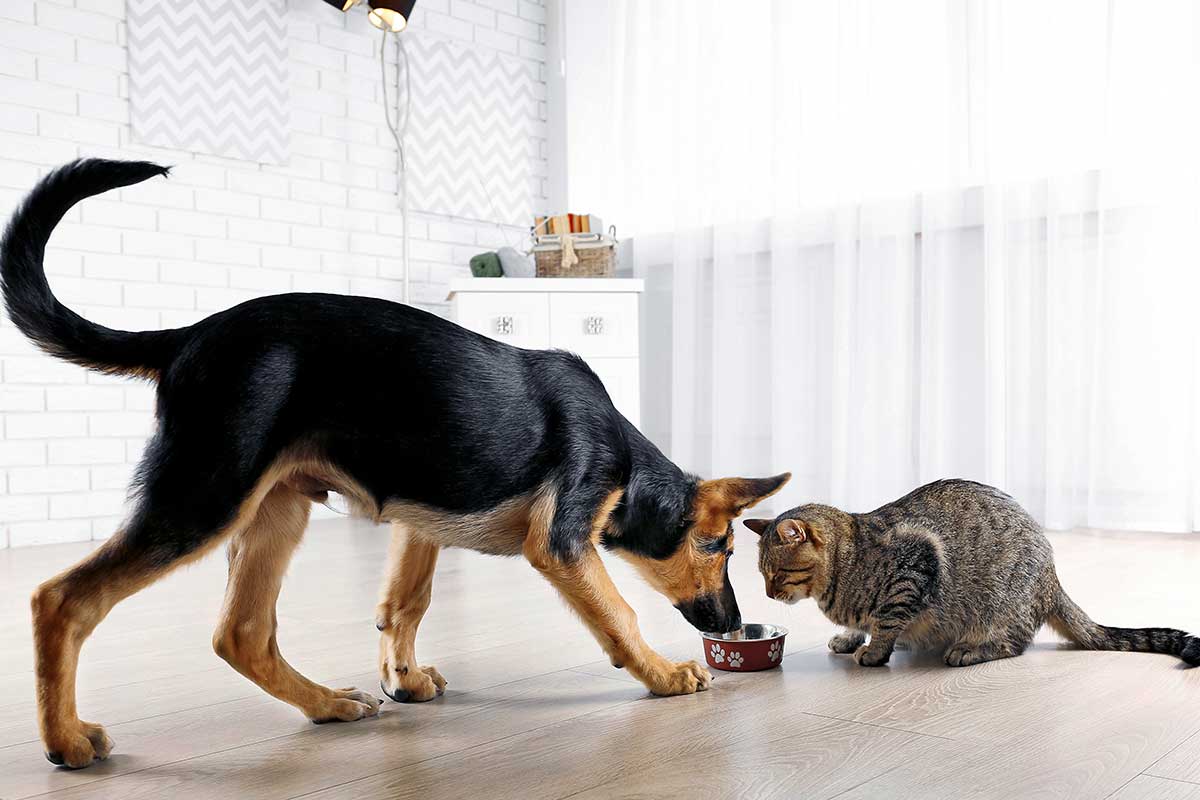Few dogs will turn up their nose at cat food, dry or canned, if given the chance. In fact, so many dogs like cat food that many dog owners who participate in training or dog sports use dry cat food as rewards.
Unfortunately, far too many dogs are also attracted to cat feces. This is a disgusting behavior and no one likes the idea of kisses from a dog who has raided the cat’s litter box.
It’s Disgusting!
Understanding why dogs like cat food is easy; cat food and dog food aren’t that different. In fact, many cat foods are probably more appealing because the fat content is often higher in foods for felines.
It’s harder to understand why dogs are attracted to cat feces, though. Dogs, however, often do things we don’t understand, and eating cat feces is certainly one of those things.
Keep in mind that although all canines are hunters, they are also scavengers. Scavengers eat many, if not all, parts of animals and that includes feces.
Other theories have been offered as to why dogs eat cat feces. One of those is that cats can’t digest all the fat in their diet and the dogs are attracted to that. It’s also been said that dogs with nutritional deficiencies may go looking for a way to solve that problem. Some behavioral experts suggest that boredom and anxiety may cause a dog to go searching for something to do and something to eat.
These are all possibilities, of course, but dog owners need to keep in mind that this is simply something that dogs do. This may be a disgusting behavior but it’s a natural one.
Prevention Is Key
Some dogs can learn to ignore cat food and the litter box, but this takes time, practice, and repetition. Meanwhile, during the training process the dog may be eating too much cat food and gaining too much weight.
If he’s raiding the litter box regularly, he’s also going to be ingesting cat litter. While small amounts of litter may give your dog a bellyache, larger amounts of litter can cause an intestinal blockage that could require surgery. It could even be fatal.
To prevent both food thievery and litter box raids, both items need to be made unavailable to your dog. Food can be on counters, tables, or other places out of reach of your dog. Litter boxes need to be covered, faced away from your dog’s access, or behind a baby gate.
If you have the space, a guest bedroom or normally unused bathroom can be the cat’s room, off limits to the dog. A catio (cat patio) that the dog cannot get into can house the food and litter box. Take a look at your home and see if there is a place where the cat can have access but the dog cannot.
What Not to Do
Don’t yell at your dog or worse, get physical with him, if you discover that he’s gotten into the cat food or litter box. Corrections that take place after the dog has performed the unwanted action do not work. Your dog will not understand why you’re yelling at him.
Instead, take a look at where the food and litter box are and see what you can do to make them inaccessible to your dog.
This article was reviewed/edited by board-certified veterinary behaviorist Dr. Kenneth Martin and/or veterinary technician specialist in behavior Debbie Martin, LVT








